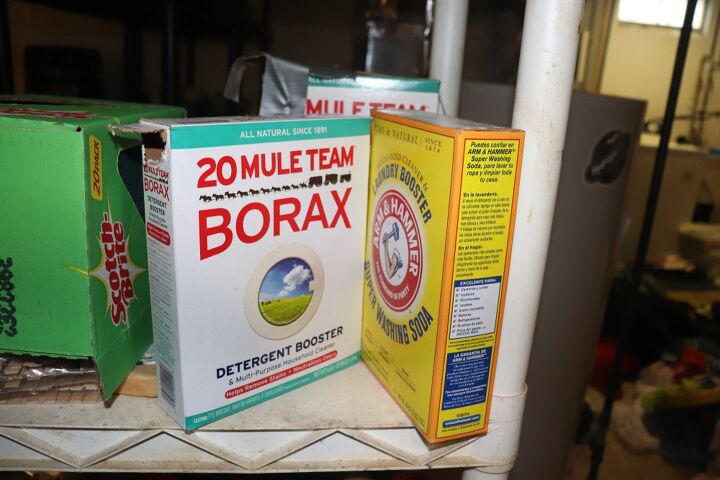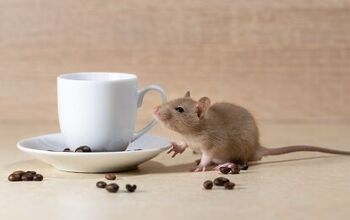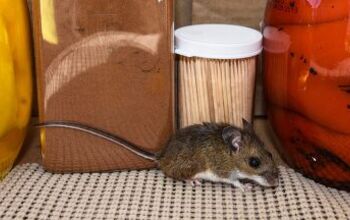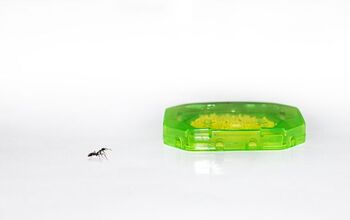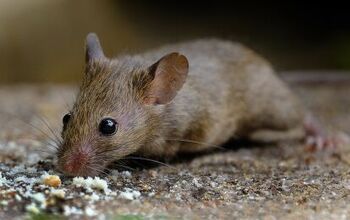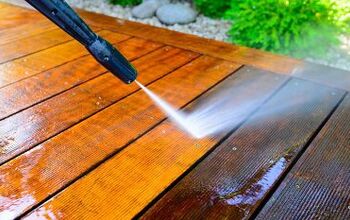Does Borax Kill Mice? (Find Out Now!)

There is nothing worth than discovering signs that you have mice in your home. Not only are these tiny guests unwelcome and unpleasant, they can also be pretty difficult to get rid of. If the idea of placing and cleaning up traditional mousetraps does not appeal to you, you may consider turning to some form of homemade mouse poison.
This brings us to the question at hand: “Does borax kill mice?” Commonly used in laundry detergents, particularly homemade ones, many claim that borax can make an effective mouse poison. However, it should be used with caution or not at all, as it can be lethal to both children and adults.
Let’s take a look at what borax is, whether or not it can be used to treat mouse infestations, and some safe application practices.
Do You Need Pest Control Services?
Get free, zero-commitment quotes from pro contractors near you.

What is Borax?
Also known as sodium borate or sodium tetraborate, borax is a white, powdery mineral that has been used as a cleaning product for decades. It has a wide variety of uses, including the following:
- Helps eliminate stains, mold, and mildew around the home.
- Effective at killing insects, such as ants.
- Present in laundry detergent and household cleaners to remove dirt and whiten.
- Can soften hard water.
- Known to neutralize odors.
- Acting as a fire retardant.
Borax is also sometimes present in cosmetic products, as a buffering agent, emulsifier, or preservative for creams, gels, shampoos, lotions, scrubs, bath bombs, and more. It is also one of the ingredients used to make “slime,” the gooey substance that many children enjoy playing with.
However, nowadays, numerous modern ingredients have replaced borax in cosmetics and cleansers due to the growing concern over its safety. Additionally, slime can now be made using cornstarch.
Borax vs. Boric Acid
Many homeowners looking for ways to control pests in the home turn to borax or boric acid. However, there is some misinformation out there about what these two substances are and what they can do. Borax and boric acid are essentially two distinct formulations of the same compound. Borax is a form of the element Boron, taken straight from the ground and commonly used in cleaning products.
Boric acid, on the other hand, is the extracted, processed, and refined version of Borax, usually found in a range of chemical products. It is most often used in pesticides and comes in a powder, tablet, and liquid form. The substance can kill insects by absorbing into them, poisoning their stomachs, impacting their metabolism, and causing damage to their exoskeleton.
Because of its finer grain, boric acid is more likely to kill pests than borax. It may be placed in a trap or on the ground and once the pest comes into contact with it, it sticks to them. They then consume the boric acid when cleaning themselves.
Does Borax Kill Mice?
Many assert that the use of borax can eradicate numerous pests, including cockroaches, ants, silverfish, fleas, rats, and even mice. Whereas, some studies suggest that borax has a minimal impact on mice, claiming that it only demonstrates an impact on testicular function and sperm mobility.
Regardless, it seems that people see the best results when borax is combined with food to form an effective poison. Create the bait by combining borax with peanut butter, or ground dog or cat food. Place the bait in mouse holes or areas where the rodents frequent. The mice will feed on the bait and then bring it back to their nest, exposing the others to the borax.
It is also suggested that borax can be used to repel mice away from your home. Sprinkle the borax around gaps, cracks, eaves, rooftops, and other potential entry points. However, if you have children or pets, you may want to opt for a different method.
Is Borax Safe?
While borax is marketed as a ‘green product’ and is considered to be natural, this does not mean that it’s completely safe. In fact, borax usually comes in a box with a caution label that warns consumers about the harmful effects if the product is swallowed or exposed to the eyes. With this in mind, borax is not safe for humans.
When exposed to high doses, boron toxicity can result. The National Institutes of Health backs this up as they found that borax is linked to a number of serious health effects in humans, including:
- Hormone issues
- Irritation
- Toxicity
- Death
The concern over using borax to kill mice in the home centers around how lethal it can be to both humans and pets. Young children and animals can very easily be exposed to the borax if proper precautions are not taken. If a young child ingests even a small amount of borax – 5 to 10 grams – they can experience shock, diarrhea, and even death. Whereas, fatal doses of borax in adults are estimated at just 10 to 25 grams.
Both the European and Canadian Union restrict the use of borax in health and cosmetic products, requiring anything that contains borax to be labeled as inappropriate for use on damaged or broken skin. In the United States, however, these safety regulations are not in place.
How to Safely Use Borax
Generally speaking, borax has been deemed safe for use as a cleaning agent, provided that you take the necessary safety precautions. Regardless, safe use of borax means minimizing exposure. With that said, follow these safety tips to safely use borax:
- Avoid all cosmetic products that contain borax.
- Always keep borax powder a safe distance away from you to prevent inhalation.
- Use gloves and wear a face mask when using borax as a cleaning product around the home.
- After using the borax, completely rinse the area with water.
- If borax gets on your skin, wash your hands thoroughly with soap and water.
- Make sure that clothes that are cleaned with borax are fully rinsed prior to drying and wearing them.
- Avoid using both borax and boric acid around your pets. This includes not using borax as a pesticide on the ground or anywhere where your pets may be easily exposed.
- Do not leave borax within reach of children, whether it’s used around the house or simply in a box. And, NEVER use borax to make slime with children.
- Cover open wounds that may come into contact with the borax, as it tends to be more easily absorbed through open skin wounds. Keeping them covered will reduce the threat of exposure.
- Keep borax away from your nose, eyes, and mouth to limit all risks of exposure.
Do You Need Pest Control Services?
Get free, zero-commitment quotes from pro contractors near you.

Related Questions
What foods are poisonous to mice?
There are a number of human foods that are hazardous to mice, including corn, onions, peanuts, chocolate, candy, raw potatoes, cabbage, and rhubarb.
What scents do mice hate?
Since mice have a keen sense of smell, you can exploit this trait and use scents that are unpleasant to mice to repel them. Some scents that mice detest include peppermint, eucalyptus, cedarwood, chili peppers, clove, ammonia, and vinegar.
How do you know if a mouse infestation is gone?
The best ways to know if you’ve eliminated your mouse problem is if there are no longer any signs of their presence. If the mice are not in your home anymore, you won’t smell that foul, ammonia-like odor that comes from their urine. You also won’t find droppings, scratch marks, or hear the mice scurrying about in the evening anymore.
Can you kill mice with bleach?
Since the smell of bleach is so strong and unpleasant to mice, it’s unlikely that they will simply come up and drink bleach. For it to be an effective bait, you must mix the bleach with something like peanut butter. If the mouse does take the bait and eat it, the bleach will kill it – but only if they’ve ingested enough. It also won’t be instant and could take one to two days.
Related Guide

Jessica considers herself a home improvement and design enthusiast. She grew up surrounded by constant home improvement projects and owes most of what she knows to helping her dad renovate her childhood home. Being a Los Angeles resident, Jessica spends a lot of her time looking for her next DIY project and sharing her love for home design.
More by Jessica Stone



